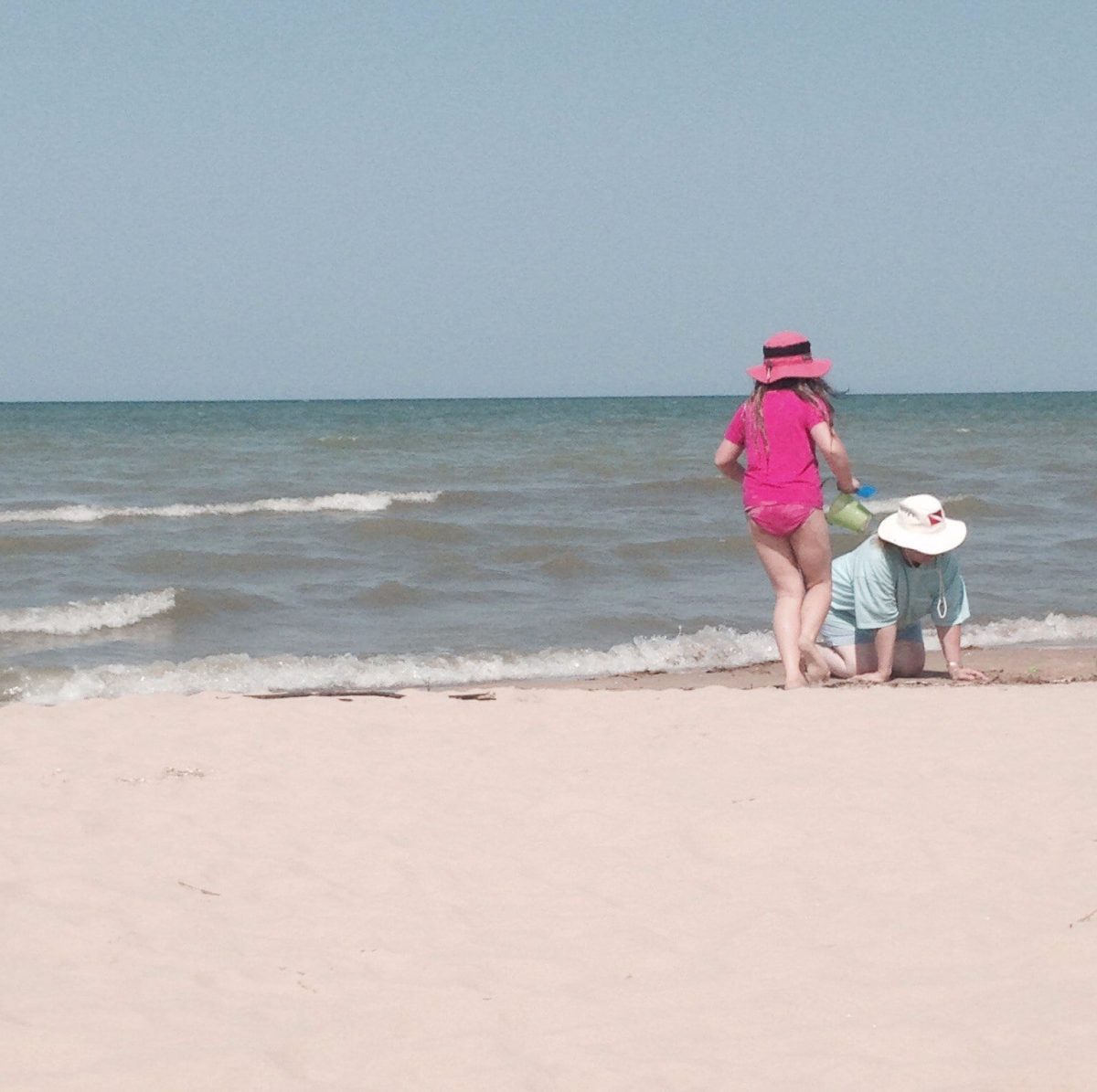The U.S. Supreme Court won’t consider arguments from Indiana property owners who claimed they wholly owned the beach along the Indiana shoreline and had the right to restrict Lake Michigan beach access. The case had implications across all the Great Lakes beaches adjoining private land. The high court’s refusal to hear the case means the shoreline is available to the public for walking, fishing, boating, swimming, and other recreational purposes.
According to the Northwest Indiana Times, three residents said their property deeds included the beach area and that it was wrongfully seized from them without appropriate recompense from the government. They were represented by the California-based Pacific Legal Foundation property rights litigation company.
The court’s decision to reject dozens of cases nationwide was made public on Monday without any justification.
The supreme court’s decision upholds an Indiana Supreme Court decision from 2018. Because the state has controlled the land beneath its portion of Lake Michigan and the nearby shoreline up to the usual high water mark since 1816 statehood, it was determined that three property owners in the northwest Indiana town of Porter have never owned a private beach.
Federal Court Upheld Lake Michigan’s Open Shores With June Decision
Last June, a federal appeals court has rejected to overrule an Indiana Supreme Court decision that declared Lake Michigan beach access to the coastline is and has always been owned by the state of Indiana for public use.
On May 25, 2022, the 7th U.S. Circuit Court of Appeals in Chicago ruled that three lakefront property owners in Porter Indiana, near the Indiana Dunes National Park, held that their property includes a private beach, lack standing to challenge Indiana’s high court judgment and state legislation in federal court to the newspaper Northwest Indiana Times.
Indiana Shores Case of Pavlock v. Holcomb

The plaintiffs in Pavlock v. Holcomb felt that their beachfront property on Lake Michigan’s Indiana shoreline extended to the low-water mark and filed action, arguing that the finding amounted to a taking of their land in violation of the Fifth Amendment’s prohibition on “judicial taking.” The defendants were Indiana officials in their official capacities: the Governor, the Director of the Department of Natural Resources, the Attorney General, and the Director of the State Land Office.
The 7th Circuit Court confirmed the dismissal of the suit. The court held that none of the named officials caused the plaintiffs’ claimed injury or are capable of redressing it, so the plaintiffs lack Article III standing.
That ruling found that Indiana owns the ground beneath Lake Michigan and the nearby shoreline up to the usual high-water mark and has done so since the state’s inception in 1816.
According to Circuit Judge Diane Wood, the property owners failed to prove that their beach property was “taken” by the state, writing for the federal appeals court, because the high court’s 2018 opinion highlighted that they never had a private beach on Lake Michigan.
The Indiana Legislature passed legislation in 2020 in response to the court’s judgment, which confirmed the public’s right to use the lake’s shoreline for strolling, fishing, boating, swimming, and other recreational activities. That statute also stated that private property owners around Lake Michigan do not have exclusive use of the beach or lake.
For almost a decade, the public has fought for the right to utilize the Lake Michigan beach access in front of private property. The case made it all the way to the United States Supreme Court in 2019, but the justices declined to consider it.
Lake Michigan Beach Access Laws In Indiana
That left a July 2018 ruling in place, which found that Indiana owns the Lake Michigan beach in trust for public use, such as swimming, sunbathing, and other recreational activities Despite opposing claims from private property owners, locals, and environmental groups, the court ruled that people’s rights extend beyond the lake to an administratively defined shoreline border, independent of beach ownership.
The justices relied on a centuries-old legal theory known as the public trust doctrine to reach their conclusion that lakefront property owners may not bar tourists from wandering along the beach. Each state is required under this theory to protect navigable waterways and underlying bottom lands for the welfare of its population.
While state courts have frequently decided that Indiana owns the bottom lands underneath navigable waters in trust for public use, there has previously been no mechanism to specify where this ownership ends on the shore. That is a tricky question, especially when it comes to Lake Michigan, where water levels can fluctuate dramatically throughout the year.
Beach Access For Walkers In Michigan
The Michigan State Supreme Court decided in 2005 who had access to certain parts of the beach. In this case, the court ruled that state residents had the right to wander in the beach’s public-trust area. This implies that private lakefront property owners cannot prohibit individuals from going down the coastline as long as they are inside the high water mark.
Because the U.S. Supreme Court declined to consider the case from Indiana, Michigan’s present statute remains in effect. However, people were worried that if the United States Supreme Court reviewed a beach rights case and amended federal regulations, it would influence Michigan and the usage of its beaches and shoreline.
The Michigan League of Conservation Voters defines the high water mark as a location where “the presence and action of the water are so constant as to leave a distinguishing mark either by erosion, loss of terrestrial flora, or other easily identifiable features.”
Lake Access Does Not Mean You Can Trespass
It is crucial to know that Lake Michigan beach access and walking rules do not allow walkers to trespass across private property to access the beach or set up a spot on the beach for the day in front of a private residence in publicly accessible areas of the shoreline. This includes climbing on rocks located on the shore, such as Turnip Rock near Port Austin. If in doubt, stroll as near the lake as possible to avoid trespassing on private property.
Sources: Cited from an article by Alexis Andiman, is a graduate fellow attorney with the Conservation Law Center in Bloomington, Indiana. Associated Press and WBOI News
Related Reading For Lake Michigan Beach Access
- Supreme Court May Rule on Great Lakes Ordinary High Water Level definition
- When the Flint Water Crisis Went Global
- New Infographic Depicts Challenges of Cleaning Up Great Lakes
- 2014 Great Lakes Ice Coverage Was Earliest On Record






I assume this pertains to all the Great Lakes? Glad to know, as we have a cottage near an easement that everyone uses to get to the beach and then setup for the day right in front of our place.
My take on this ruling is they can’t set up camp for the day on your beach right in front of you. But they can walk by and play in the water in front of you. Basically anything down from the high water mark is owned by the state, not you.
if the beach is owned by the state up to the high water mark then why cant people picnic on the beach up to the high water mark